The earpieces take away excitement and the UCI is already removing them from the competition
The Vuelta a Burgos, which is taking place this week, is being chosen as the stage for the debut of the new security measures and to enhance the spectacle that the UCI announced a couple of months ago along with others such as the establishment of a yellow card system or the variable protection zone at the stage finishes that was already implemented in the Tour de France.
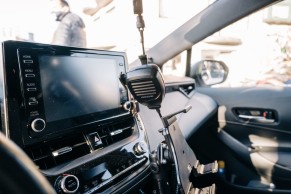
Security and spectacle lead UCI to test cycling without earpieces
At the beginning of June, echoing the safety proposals issued by SafeR, the UCI made the decision to establish several measures that would be tested starting in August. In the first major race after the whirlwind of the Paris Olympic Games, the UCI has begun to implement one of the most controversial measures related to the use of earpieces that allow constant communication between the director and the cyclists.
During the first stage of the 2024 Vuelta a Burgos, the race will be held without earpieces to see if it has an impact on the development of the race and, above all, on safety since the main objective is to reduce the number of falls. The second experiment will take place in the fifth stage where only two riders from each team will wear earpieces, being responsible for communicating with the director and transmitting the relevant orders to the rest of their teammates.
RECOMENDADO
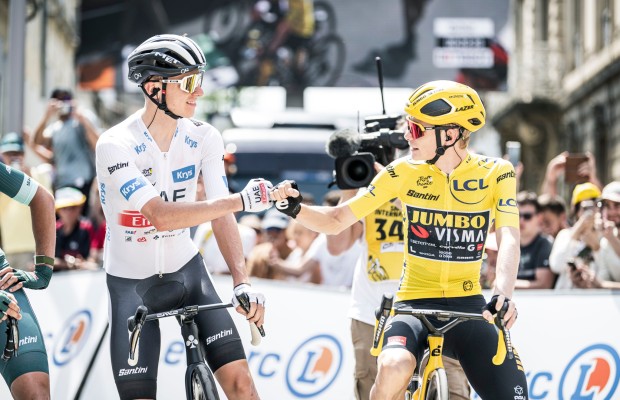
Why does the mountain jersey have red dots? Get to know the most important jerseys of the Tour de France

What watt/kilo ratio do you need to have to try to win a Tour?

When do helmets have to be changed? Do they have an expiration date?
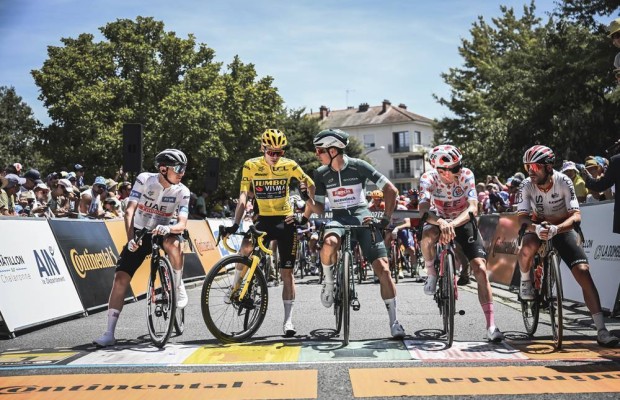
How much money cyclists earn in the Tour de France

The 8 most emblematic mountain passes of the Tour de France

Tips for getting up early to ride
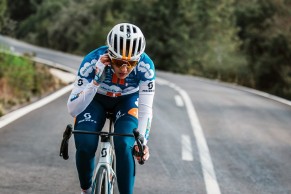
As we were saying, the use of earpieces is controversial. On one hand, this element is accused of limiting the freedom of the cyclist when attacking, deciding whether to collaborate or not. Many even argue that it has created a generation of cyclists without decision-making ability and, worse, without race vision and who have to ask at all times what they should do before doing it.
On the other hand, earpieces are also blamed for the increase in falls that have occurred in recent years. In current cycling, teams have complete information about the difficulties of each section of the route or where crosswinds come from. Therefore, directors constantly insist to their riders through the radio to stay together, to position themselves at the front of the peloton, etc. Obviously, when all teams try to stay grouped and at the front, there is not enough space for everyone, generating tremendous tension that inevitably leads to falls.
However, from the perspective of teams and cyclists, the strongest defenders of their use, it is pointed out that earpieces serve to warn the cyclist of the difficulties they will encounter on the route such as narrowings, islands, roundabouts, etc. In addition, constant communication with the car allows, in case of a breakdown or need, to notify in advance so that everything is ready when it reaches the cyclist with what they may need: front or rear wheel, complete bike, water or salts, etc.
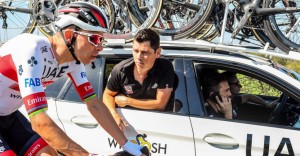
One aspect that earpieces have eliminated is the unpredictability of races since, at all times, the cyclist is aware of the race situation: how many riders are in the breakaway, if there is a dangerous rider among them, what time difference they have beyond the information provided by the timing motorcycles that have continued to operate, if they are pushing hard or not, if any rider has suffered a breakdown or fall.
Removing earpieces is something that the UCI is currently testing in races, let's say, conventional ones. However, every year we can enjoy a race where earpieces are not used. This is the World Cycling Championship, a race that usually turns out to be tremendously spectacular.
A few days ago, we also saw another race where earpieces are not allowed, such as the Olympic Games. It was curious to see the image of Remco Evenepoel, at the moment of suffering a puncture that had us on the edge of our seats just 4 kilometers from the finish, eagerly asking for a spare bike without knowing if his lead was significant or not. And afterwards, asking the race motorcycles for time references, also attributable to the improvable service of the timing motorcycles.
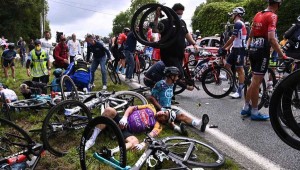
In the same race, it was also curious to see Christophe Laporte pushing hard from behind alongside Matteo Jorgenson, unaware that, ahead, fighting for the silver medal, was his teammate Valentin Madouas. And if we go a little further, in the Tokyo Olympics, in the women's race, Anna Kiesenhofer escaped at the beginning of the race with other riders who were gradually caught while she managed to maintain the lead and win the gold medal. A little over a minute later, the great favorite of that race, Annemiek van Vleuten, crossed the finish line believing she had won without knowing that there was still a rider ahead.
What is strange is that no one is considering an intermediate solution such as allowing the use of earpieces but connected to the Radio Vuelta signal. This way, cyclists could be informed about the race situation and route difficulties but not be restricted by messages from their director who, on the other hand, could listen to a cyclist asking for something. In any case, we will have to see the result of these tests that the UCI is conducting to finally see what they lead to.